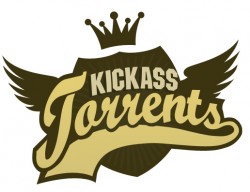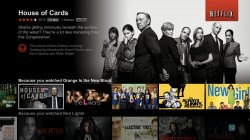Slightly more news this week. Nothing like the earth shattering demise of KickassTorrents, but still some really interesting stuff. Something that may also pique your interest is my new site Meowware (meowware, malware, geddit?), which now mostly lives on Facebook, Twitter and Instagram. If you’re interested in funny cat pictures, videos, but with a technology (and malware/security) focus, then Meowware may just be a site that you’ll occasionally visit when you can’t be bothered to do any real work. And even if you’re not particularly interested, please like, share, follow, retweet, forward, twist, turn, fax, churn or bake our pages!
Speaking of real work, here’s the news roundup …
![]()

isoHunt’s legal troubles have only just ended, despite the site being shut down nearly three years ago
While KickassTorrents’ troubles are just starting (have a look at last week’s WNR if you’ve missed the big news), the legal worries for another once great torrent site, isoHunt, has just ended (not the clone that’s now in its place, but the original one that was run by one Gary Fung).
Fung announced that the last of the lawsuits against the now defunct isoHunt has been settled, and Fung can now move on with his life (to be fair, he’s already done that) with another $66 million in damages awarded against him. So that’s a combined total of $176 million “owed” by Fung, or rather, the now bankrupt isoHunt – money that the MPAA and Music Canada, the two respective plaintiffs in the lawsuits, will most likely never see.
It took 8 years from the very first take-down notice to this final judgement, and who knows how much money spent on lawyers, and while rights-holders rejoiced when the original isoHunt was shut down, the fact that a clone of the site is still operating and doing well, means that it could all be for nothing. And in terms of the isoHunt shut down and legal victories being a deterrent, that doesn’t seem to have been the case either.
The seizure of KickassTorrents, and the arrest the prosecution of its owner, might be a short term deterrent though, but all it will do is to make others who run similar sites be more cautions in the future, and to protect their identities better. The solution to piracy, I think, lies elsewhere.
One potential solution, when it comes to movie piracy, has been suggested by none other than James Cameron this week. The director of Avatar has urged cinema chains to step up and give movie-goers a more “premium” movie experience, or they might face destruction at the hands of industry disruptors, including piracy. As a director, Cameron is especially sensitive to the fact that he often has to shoot to fit the lagging standards of cinemas, rather than to be true to his own vision, this, he says, is key to winning the war against piracy.
For the price we’re paying, I definitely feel that we’re not always getting what we’re owed in terms of the cinema experience. Whether it’s dim screens, or lackluster sound, it has become the norm that you can often get a better cinematic experience at home if you invest in the right equipment. And with new home theater technology such as OLED screens, 4K, HDR, wide color gamut, and Dolby Atmos becoming more common, and cheaper to access, the threat that Cameron mentions is very much real and getting realer by the day.
![]()
With Nintendo stock rising tanks to Pokemon GO, and then falling when investors realised the hit AR game has very little to do with the company, Nintendo’s real profit results were a real disappointment. With hardware sales down 50%, the company’s next console can’t come soon enough. But that console, dubbed the NX, might be a very different console to what we’re used to seeing, if Eurogamer’s report is to be believed.
The NX may in fact just be a gaming tablet. A very advanced one that plugs into your TV via a dock, and has two detachable controllers that allows for two player gaming instantly regardless of where you are, but still a tablet. It will be powered by a powerful Nvidia Tegra chip, but don’t expect graphics that will kick the PS4/Xbox One’s butt (let alone the Neo/Scorpio). And oh, game cartridges are back, at least for a gaming company’s flagship console.
I’m not sure how I feel about it to be honest. When I imagine a gaming tablet with two detachable controllers, I’m thinking either a huge-ass tablet that’s not particularly portable, or two super tiny controllers that are hardly worth the bother. And as good as mobile technology has gotten, there’s only so much tech you can fit into a tablet before it becomes too hot or too heavy – will it be good enough to deliver graphics that people might be looking at on 4K TVs (by the time the NX is near its mid-life, 4K might be more common than you think)?
Of course, all of this could be nonsense and Nintendo will give us just another run of the mill home console, but doing the same thing may not be a bad idea, as long as you do it right (like the PS4 has done). Getting innovative can have its rewards, like the Wii has proven, but it could also have its risk, like the Wii U has sadly proven.
Meanwhile, you can now get a Xbox One for $249, after Microsoft dropped the price of the 500GB version ahead of the arrival of the “S”.
——
That’s it for the week. Don’t forget the visit Meowware – you can never have enough meowware in your computer!












